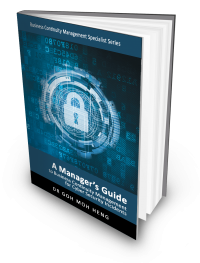Ransomware
| 1. Ransomware happens when the organization’s systems or files become encrypted through malware, denying access to users. The encryption will only be reverted when the user agrees to pay the ransom to regain access.
Related Term: Malware

|

2. Ransomware is a sophisticated piece of malware that blocks the victim’s access to his/her files, and the only way to regain access to the files is to pay a ransom.
Source: (Zaharia, 2017)
3. Ransomware is malware that locks your keyboard or computer to prevent you from accessing your data until you pay a ransom, usually demanded in Bitcoin.
Source: (Zetter, 2017)
4. Ransomware is characterized by malware that prevents users, typically through encryption, from accessing their system, file shares or files. After gaining access and control, threat actors hold the data for "ransom" until the user agrees to pay money to regain access to their data. For this reason, we consider data ransomware as a lethal data breach scenario.
Source: (Verizon, 2016)
5. Crypto malware, a form of ransomware, is malware that prevents users from accessing their system, file shares or files by encrypting the data. After gaining access and control, threat actors hold the data for “ransom” until the user agrees to pay for regaining access to their data.
Source: (Verizon, 2017)